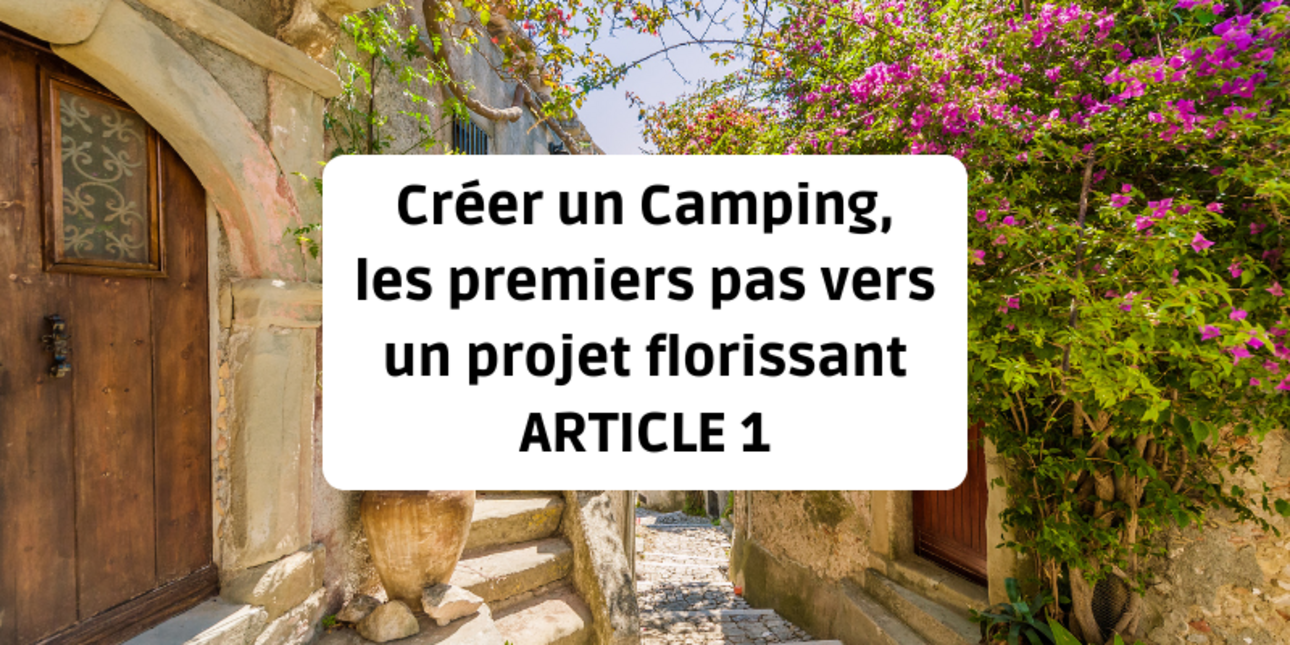
In the world of tourism campsites Insee (Institut national de la statistique et des études économiques) figures confirm that campsites in rural areas are gaining in popularity and business. In 2023, there were 118.9 million overnight stays at campsites, more than the hotels which recorded 89.0 million. That year, campsite numbers were up 3.0% on 2022, while hotel numbers were down 1.6%. These figures underline the growing role of campsites. The 3.5 million extra overnight stays at campsites in 2023 alone explain the overall increase in summer stays. So we're going to go through the various stages of the preliminary study, for those considering setting up a rural campsite in France. In this article, we'll explore motivations, the diversity of accommodation and the strategic choice of location, key elements to be taken into account by any entrepreneur aspiring to launch a camping project.
Let's explore the various reasons for opening a campsite in a rural setting, whether it's the state of the market, profitability, the environment, passion, the economic benefits for local communities, or simply the desire to lead a simpler life.
The French outdoor camping market is booming. It stands out for its ability to meet the expectations and tastes of its customers. Opening a campsite offers a daily experience of adventure, regardless of the season, which explains the encouraging outlook for the sector. The growing demand for outdoor holidays based on relaxation and nature is reinforcing this trend. The market is evolving to accommodate a more discerning clientele, with upmarket services and unusual accommodation gaining in popularity, paving the way for new opportunities in emerging markets.
Opening a campsite requires a considerable investment in land, equipment, security and furniture. The total cost will of course depend on the facilities and services you wish to offer. Although the initial investment may be high, it is important to note that some equipment will need to be renovated or upgraded on a regular basis. There will also be regular maintenance, renovation and improvement costs. However, investing in a campsite generally offers a good return on investment.
Opening an unusual or ecological campsite can be very profitable, as there is currently a strong demand for this type of establishment. This is part of the general trend for tourism sectors to move towards eco-tourism. Promoting respect for the environment can even open up opportunities, sometimes leading to public subsidies. The creation of a campsite in a rural setting not only offers a place to relax, but also actively contributes to the preservation of nature. These types of businesses can play a vital role in making visitors aware of the beauty of the environment, encouraging them to protect it. The opening of a company can also be motivated by the desire and urge to reconnect people with nature, promoting a healthier way of life. By adopting environmentally-friendly practices, the campsite contributes to its own sustainability and the preservation of natural resources. Finally, this project can be positioned as an opportunity in the context of ecotourism, a fast-growing trend. By focusing on environmental sustainability and the preservation of nature, a campsite in a rural setting meets the expectations of travellers committed to an ecotourism approach.
Passion is the key to opening a campsite. It guides you towards growing expertise and responsibility in the outdoor hotel industry. Never forget that it is this passion that motivates entrepreneurs to embark on this adventure! If you enjoy business and outdoor activities, opening a campsite is one way of living out this dream on a daily basis. However, there are a number of conditions that need to be met, including obtaining declarations such as authorisations and permits.
Campsites can bring significant income to local communities. They have the potential to generate and promote jobs, stimulate the regional economy and encourage tourism. Some entrepreneurs see opening a campsite as an opportunity to contribute to local economic development and create jobs within the community. With this in mind, they seek to offer campers an authentic experience and situation by immersing them in local culture, traditions and rural life.
 Rural campsites offer a simple lifestyle close to nature, ideal for those looking for a change of pace, a healthier lifestyle experience, or simply a quiet place to relax. Opening a campsite can be an excellent option for those looking for a peaceful life in harmony with the tranquil surroundings of the countryside.
Rural campsites offer a simple lifestyle close to nature, ideal for those looking for a change of pace, a healthier lifestyle experience, or simply a quiet place to relax. Opening a campsite can be an excellent option for those looking for a peaceful life in harmony with the tranquil surroundings of the countryside.
Traditional campsites are open for 6 to 9 months of the year and offer pitches to rent for tents, caravans or motorhomes. Sanitary facilities, such as showers, toilets and sinks, are generally shared, although the vast majority of campsites offer water and electricity connections, which are particularly appreciated by caravanning enthusiasts. The emphasis at these campsites is on conviviality, which encourages campers to get together outside their pitches to take advantage of the shared facilities (refreshment stands, restaurants, swimming pools, etc.). What's more, the affordable rates make traditional camping an ideal option for family holidays.
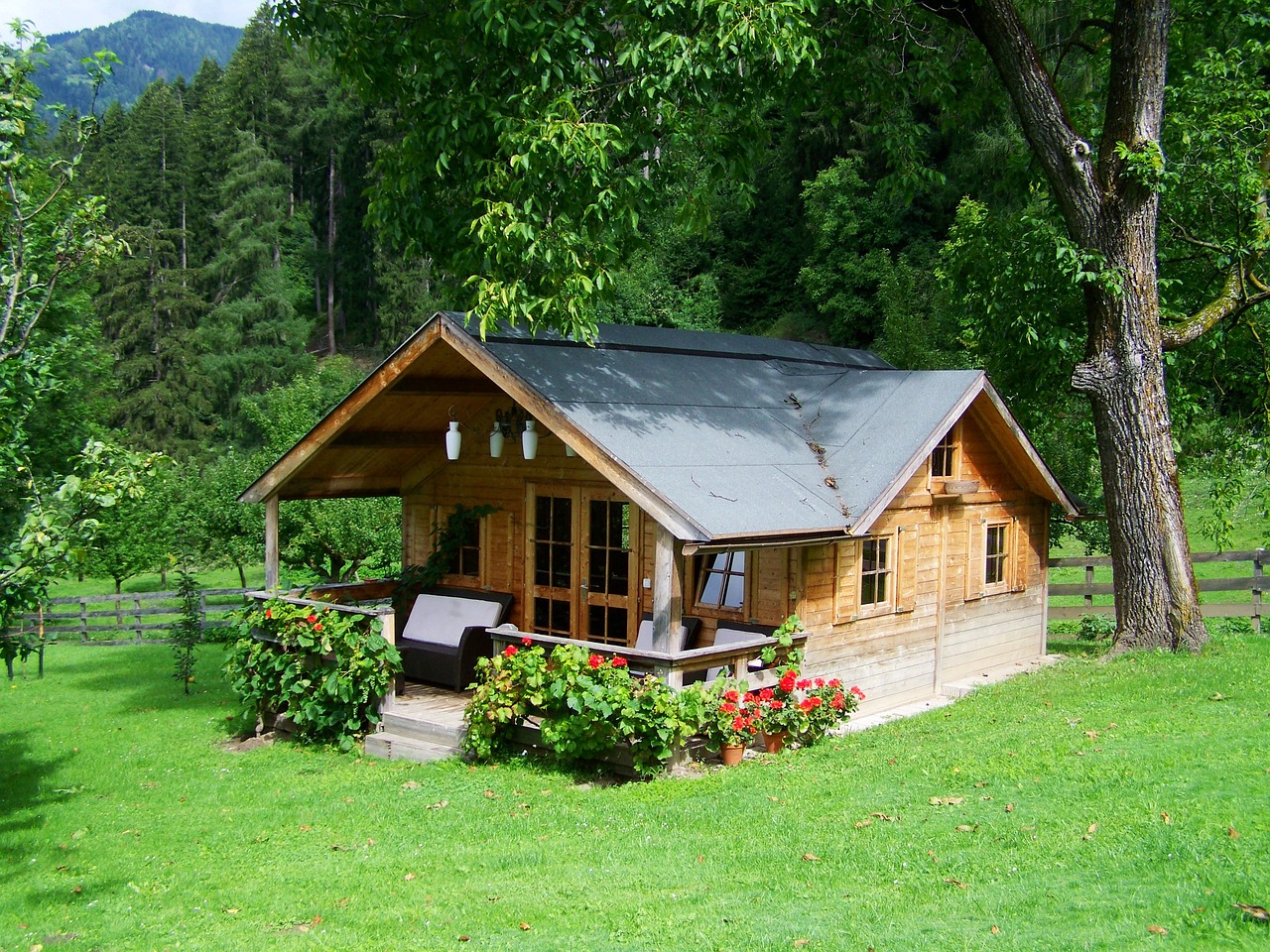 Residential leisure parks (P.R.L.) are areas dedicated to light dwellings, such as chalets or mobile homes, available for hire or purchase. These establishments, which are open all year round, offer much larger plots than traditional campsites, with a minimum surface area of 200 m². Although the leisure facilities may be similar to those at traditional campsites (children's play areas, swimming pools, etc.), residential leisure parks stand out for their superior services, such as caretaking and maintenance of green spaces. This makes them an attractive option for those looking for a permanent or seasonal residence that offers additional benefits and services.
Residential leisure parks (P.R.L.) are areas dedicated to light dwellings, such as chalets or mobile homes, available for hire or purchase. These establishments, which are open all year round, offer much larger plots than traditional campsites, with a minimum surface area of 200 m². Although the leisure facilities may be similar to those at traditional campsites (children's play areas, swimming pools, etc.), residential leisure parks stand out for their superior services, such as caretaking and maintenance of green spaces. This makes them an attractive option for those looking for a permanent or seasonal residence that offers additional benefits and services.
Glamping, also known as glamorous camping, represents an alternative form of camping, based on originality and respect for the environment. Originating in the United Kingdom, glamping combines the unusual, luxury and ecology in a unique camping experience. Atypical accommodation, such as tipis, yurts, tree houses, caravans and transparent bubbles, offer a high level of comfort. Glamping is therefore an ideal holiday option for people who want to enjoy nature in the best possible comfort.
Eco-camping, or green camping, is a form of camping that stands out for its commitment to respecting the environment. The accommodation on offer (yurts, wooden cabins, tiny houses, etc.) is designed using natural or eco-responsible materials. The activities on offer, such as horse riding, canoeing and sailing lessons, as well as waste management and energy consumption, are all geared towards reducing the ecological footprint. Green camping also incorporates innovative practices such as dry toilets, bulk sales in the shops and the use of solar panels, promoting responsible holidays. Note that La Clef Verte and the European Ecolabel are both environmental labels that attest to the eco-responsible commitment of these campsites. Eco-camping is ideal for those who want to enjoy nature while respecting the environment.
Homestay camping, also known as gamping (combining the words "garden" and "camping"), is gaining in popularity and is following the trend of "camping in the garden Wwoofing. This simple concept involves owners renting out their garden to campers, who can pitch their tent, caravan or motorhome there, subject to mutual agreement. As part of the collaborative economy, homestay camping offers an affordable alternative for travellers, particularly singles or couples, looking to save money on accommodation.
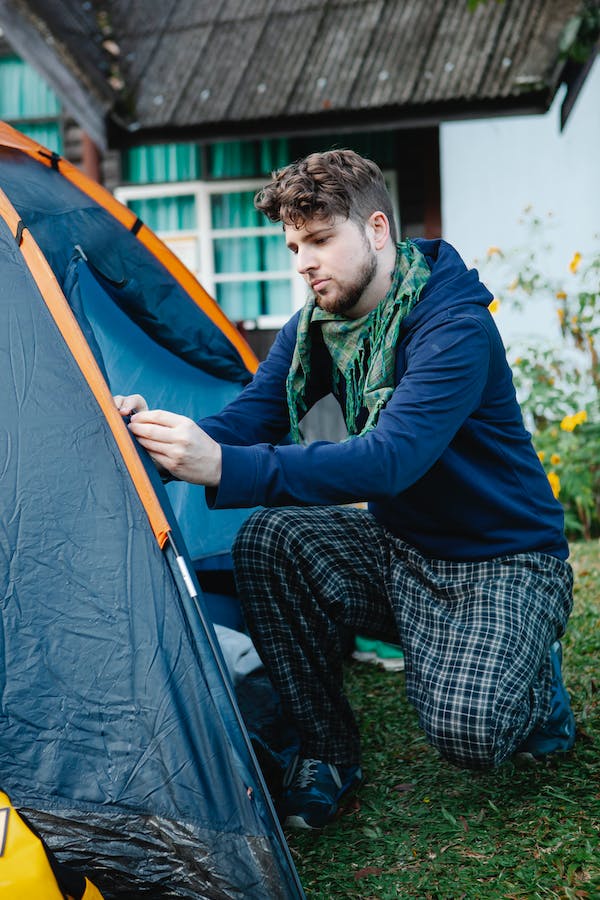 Camping on a farm, similar to camping with a local, offers the opportunity to set up camp on a piece of farmland, allowing campers to discover the farm lifestyle and enjoy farm produce. Camping on a farm means immersing yourself in the heart of a farm or a wine estate, which offers a return to nature in the midst of animals and the tranquillity of the countryside. Here, the emphasis is on authenticity, with operators welcoming campers to share their reality, sometimes offering animal-related activities or discussions about the owners' daily work. This type of campsite offers an experience in the heart of nature, while showcasing the local produce and offering holidaymakers the chance to taste farm products made on site.
Camping on a farm, similar to camping with a local, offers the opportunity to set up camp on a piece of farmland, allowing campers to discover the farm lifestyle and enjoy farm produce. Camping on a farm means immersing yourself in the heart of a farm or a wine estate, which offers a return to nature in the midst of animals and the tranquillity of the countryside. Here, the emphasis is on authenticity, with operators welcoming campers to share their reality, sometimes offering animal-related activities or discussions about the owners' daily work. This type of campsite offers an experience in the heart of nature, while showcasing the local produce and offering holidaymakers the chance to taste farm products made on site.
Choosing the category of campsite you wish to open is of crucial importance, determining the formalities and regulations that will apply to your establishment. Here are a few options to choose from:
1. Declared campsites: Each of these sites, whether managed by farmers or other rural residents, must be officially declared to the town hall, hence the name "declared". They are limited to a maximum of 20 campers and can only have a maximum of 6 accommodation units. This type of campsite is often associated with small structures such as farm campsites or homestays. They are not eligible for star rating, but can accommodate tents, caravans and motorhomes.
2. Developed campsite: This is a campsite with more than 6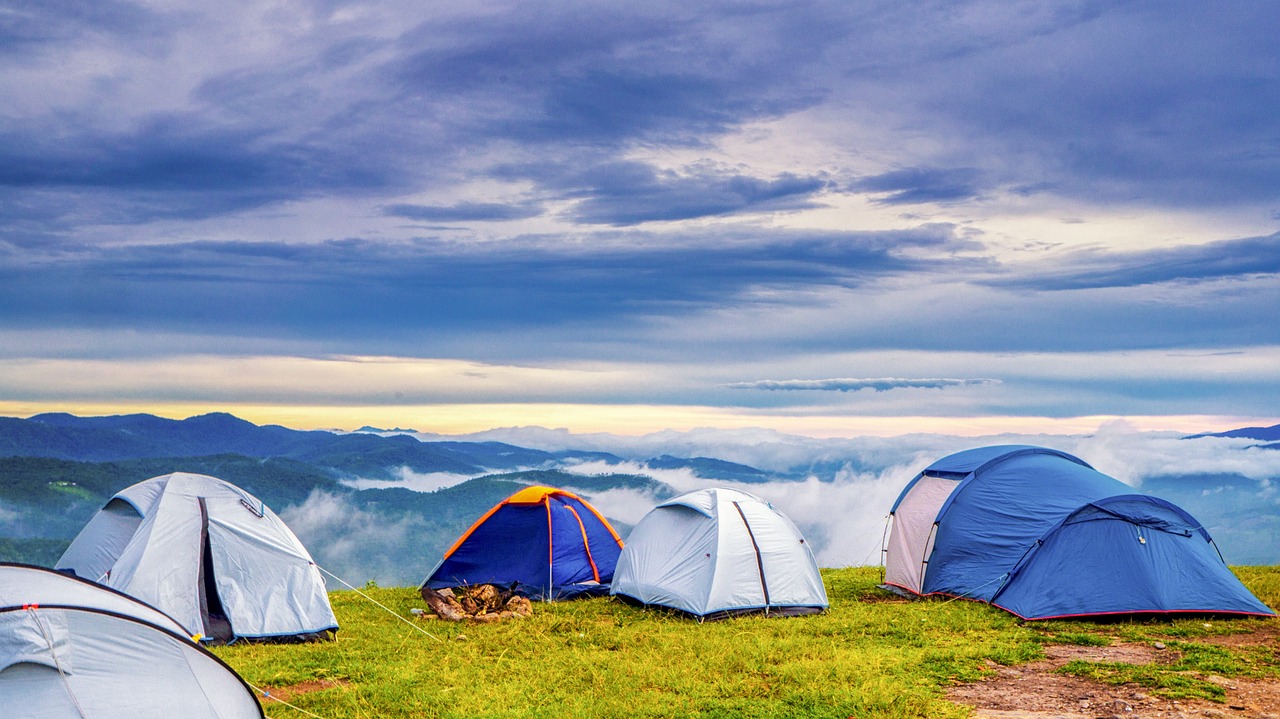
pitches and can accommodate more than 20 campers. It can accommodate tents, caravans, mobile leisure homes and light leisure dwellings. They are open all year round, with permanent or seasonal facilities. It is rated from 1 to 5 stars according to criteria such as facilities, services, accessibility and sustainable development.
3. Aire Naturelle" campsites: these are open for a maximum of 6 months a year and offer up to 6 pitches without a garage for caravans. They are open exclusively to tents, caravans and motor caravans, and are open for 6 months with no obligation for continuity. Each land ownership can create a single natural area, with its own set of rules and regulations, requiring planning permission from the town hall to start operations (Article D.332-1-2 of the Tourism Code).
4. Residential Leisure Park (PRL): A PRL is a dedicated site, complying with urban and tourist regulations, open all year round and designed to accommodate light leisure dwellings (HLL), mobile leisure homes (RML) and caravans. Bare pitches for tents are not common in this type of site. There are two types of PRL: plot transfer (plot sale) and plot rental (hotel operation). To operate a PRL as a hotel, a single individual or legal entity must be responsible for the operation, owning or enjoying the land. The customer base cannot be permanent.
The choice of category and size of campsite is essential, influencing the rules and administrative procedures. Declared campsites, linked to rural structures, are not awarded stars but offer a range of accommodation. Developed campsites, rated from 1 to 5 stars, offer a variety of facilities throughout the year. Aire Naturelle" campsites, which are open for a maximum of 6 months, have a maximum of 6 pitches and are exclusively for tents, caravans and motorhomes. Finally, the Parcs Résidentiels de Loisirs (PRL) are dedicated to light leisure dwellings, with two options for the sale or rental of plots, operating under the hotel regime and prohibiting permanent residence.
Choosing the location for your campsite is a crucial step that depends on a number of considerations. First of all, town planning regulations play a major role, as they may prohibit the establishment of campsites in certain areas of the country, such as seasides or protected sites. So it's essential to consult your local council to find out about any restrictions and to ensure that the legislation is fully respected.
The type of campsite you plan to run will also influence the choice of pitch. For example, creating a nature-based campsite with bubbles or cabins in the middle of the forest will require a quiet location. On the other hand, if your concept is based on the sea air, you'll want to look at the possibilities along the coast.
The presence of competition in the area around your site should also be taken into account. If a number of campsites are already established nearby, it's crucial to ensure that there's enough of a clientele or that your concept stands out enough to attract campers.
Opening a campsite involves not only choosing the ideal location, but also complying with the various regulations in force. The search for a site must be methodical, taking into account a number of criteria, such as the work required. It is essential to comply with the legal provisions laid down by Articles A111-7 to A111-10 of the French Planning and Development Code.
Certain locations are strictly forbidden by law, such as marine coasts and listed or classified sites at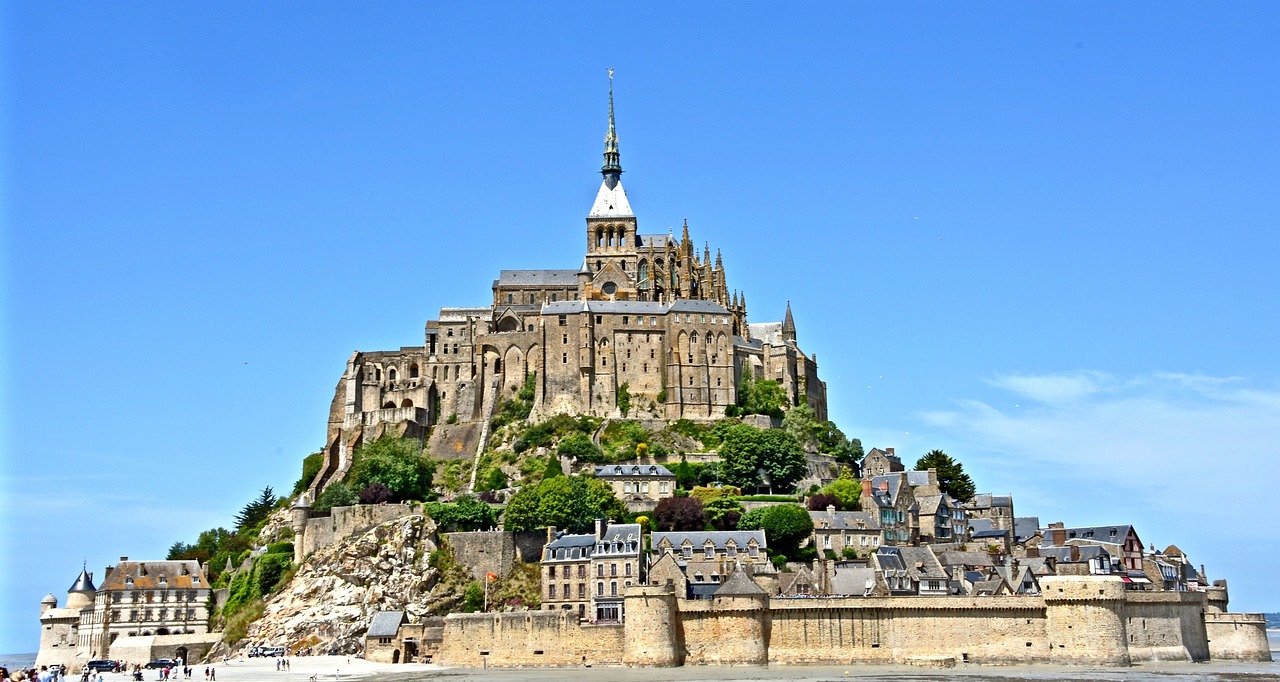 heritage, and the interior of nature reserves. On the other hand, certain installations are authorised, such as those in the vicinity of sources of drinking water, with a minimum distance of 200 m, or in the vicinity of historical monuments listed or classified heritage sites, with a minimum distance of 500 m.
heritage, and the interior of nature reserves. On the other hand, certain installations are authorised, such as those in the vicinity of sources of drinking water, with a minimum distance of 200 m, or in the vicinity of historical monuments listed or classified heritage sites, with a minimum distance of 500 m.
It is crucial to ensure that the land can be built on, to obtain permission from the site's fructus holder for any works, and to respect the contracts between the campsite manager and the customers. So choosing the right location to open a campsite requires a thorough understanding of the regulations in force, to ensure that the establishment complies with the law and operates ethically.
A thorough preliminary study is essential for anyone wishing to set up a rural campsite. It helps to understand the market, assess potential profitability and the benefits to the local community, as well as helping to determine the optimum choice of location, size and types of accommodation. However, it is crucial to remain flexible in the face of potential challenges and to seek professional expertise to ensure the success of the venture. By putting these principles into practice, entrepreneurs will be better equipped to realise their vision of creating a thriving rural campsite that is attractive to campers. In the next article, we'll look at the planning and provision of services to turn these ideas into reality and ensure an exceptional customer experience.